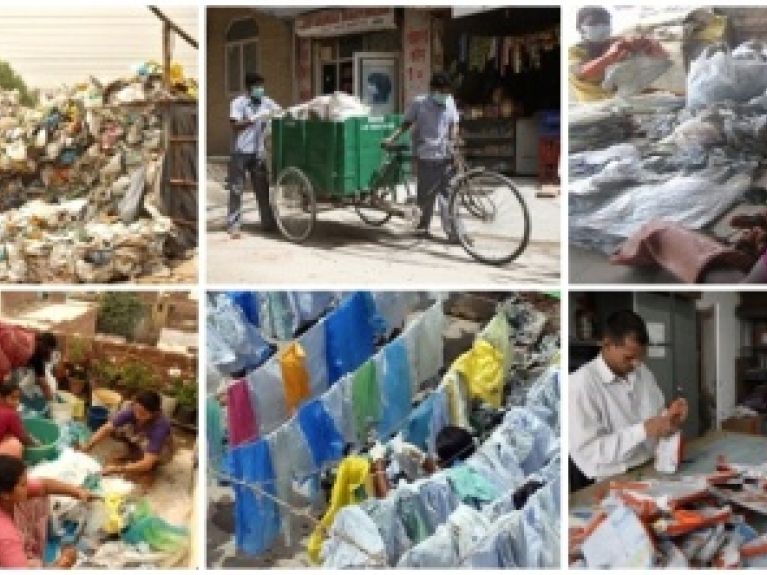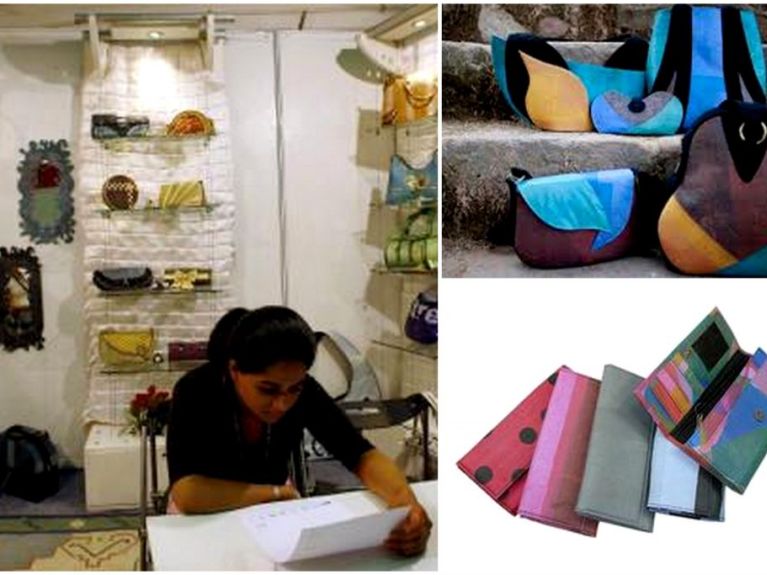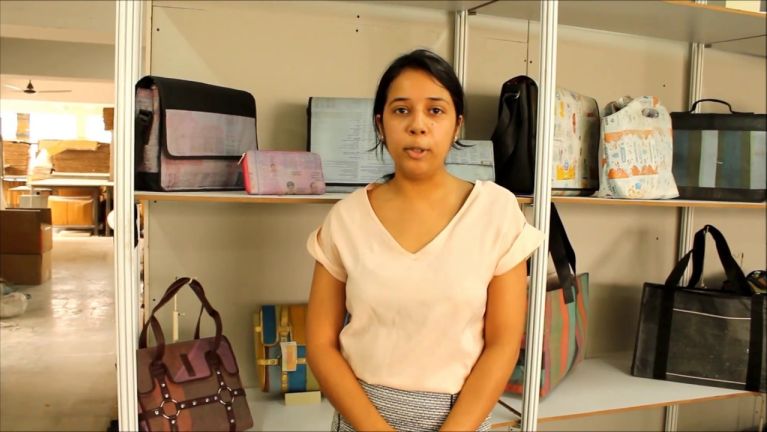Handmade Recycled Plastic, India
Conserve India has invented a technique to upcycle plastic waste from landfill sites and upcycling it into high-value fashionable products.

Project name: Handmade Recycled Plastic
Project location: India
Website: http://www.conserveindia.org
Facebook: https://www.facebook.com/conserveindiango/?ref=bookmarks
Dieses YouTube-Video kann in einem neuen Tab abgespielt werden
YouTube öffnenThird party content
We use YouTube to embed content that may collect data about your activity. Please review the details and accept the service to see this content.
Open consent formProject description:
Conserve India has invented a technique to upcycle plastic waste from landfill sites and upcycling it into high-value fashionable products. In the process, Conserve provides jobs to the most exploited strata of the society - the ragpickers. Ragpickers in urban slums around Delhi have been trained to collect, wash and sort LDPE and HDPE plastic from the landfill sites. This plastic is then processed into a new material called "Handmade Recycled Plastic (HRP)". HRP can be used as a substitute for leather. It is a new, contemporary, upcycled fabric which can be produced at the fraction of a cost of leather and contributes vastly to a circular economy. There are a multitude of products that can be created by the HRP fabric like bags, wallets, diaries, trench coats, table mats, wallpaper etc.
The HRP upcycling follows a sustainable process. Traditional recycling of plastic involves the old plastic being melted into pellets and then melted again to form low-value products. This is a environmentally hazardous process as each kg of plastic that is recycled produces upto 60kgs of carbon dioxide emissions. The HRP upcycling process does not produce carbon emissions as the plastic is not melted but merely fused together to produce high-value products.
HRP products do not use any dyes in their manufacturing. The products are designed and manufactured in a way that the original colours of plastic bags are retained in the end product producing a naturally colourful, attractive, new fabric.
Till date, Conserve India has trained over 500 women from the ragpicker community in different processes of manufacturing. Many of them now work as self-help groups catering to different manufacturing firms. This has resulted in an increased household income for the ragpicker community and has drastically helped uplift the status of women in the community. The additional income is being utilised in furthering nutritional and educational needs of children of the community.

Goal and purpose of the project:
The purpose of the project has always been to be able to devise a solution for the twin problems of unemployment and waste while producing a business model that is sustainable. The intent of the project has been to train the urban-slum community in utilising the only resource available to them - waste, as a means to run a sustainable business catering to the triple bottom line of People, Planet and Profit.
Motivation of the applicant / applicant team:
Conserve India has been working in the slums of Delhi for over 15 years now and in this time, we have realized the need for sustainable innovations that can work as profitable business models for the low-income group. Personally, the status of women in the slum community has been a major driving force in running this project. Women are shunned by their husbands and are not able to protect themselves or their children. This project provides a means for them to develop themselves while contributing to their household income.
Use of prize money:
The prize money will be used to establish a replication of the pilot project in another urban slum where we can train women and further help the community. We have demonstrated a successful pilot and we feel we are now ready to replicate the project at different sites. We have isolated a location in Uttar Pradesh, India where exists one of the poorest slums in India which is right next to a massive landfill site. With the prize money not only can we train upto 50 women of this community and help them set up their enterprise by training them in different business processes like production, quality check, packing, sales but we will also be conducting soft-skill trainings for the women and healthcamps and awareness workshops at the community level. We realize this is market-driven project and we will be lending them complete design and marketing support for upto 2 years.
We are also looking to involve public schools in the project with an aim to sensitize students on the importance of waste management and sustainable innovations from an early age.
